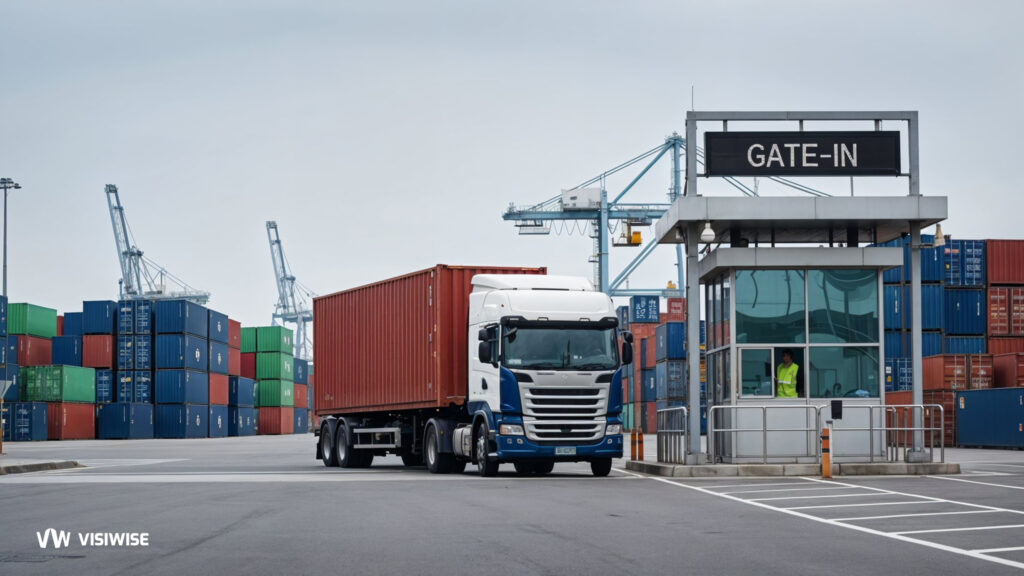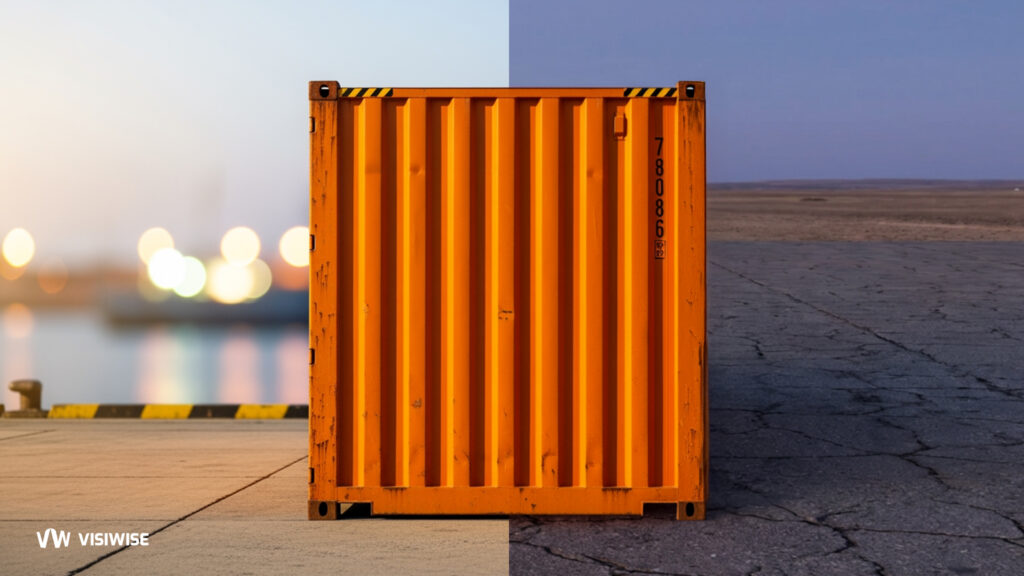As any shipper knows, demurrage is a charge applied to containers left at the port or rail yard longer than their allotted free time. This fee is charged per container / per day until the container is picked up, and it can quickly add up for shippers who are not careful. While demurrage is sometimes unavoidable, shippers can do a few things to minimize their exposure to this fee.
First, they can track their containers closely and ensure that they are picked up as soon as possible after their last free day. Second, they can work with their logistics provider to negotiate a lower Demurrage rate. And third, they can use Demurrage mitigation strategies such as on-dock rail and free time agreements. By taking these steps, shippers can avoid incurring costly Demurrage fees.
Demurrage for Importers
Demurrage is a charge levied by a port on the owner of a container for its detention beyond the allowed free time. The free time period typically ranges from three to seven days, depending on the port. Demurrage charges are intended to discourage shipowners and operators from congestion at the port. They are also meant to motivate terminal operators to move containers out of the terminal promptly.
In some cases, demurrage charges may be used to encourage shoppers to pick up their containers in a timely manner. Demurrage is usually assessed on a daily basis and is generally higher than storage fees. Demurrage charges can be costly, so it is important for shippers to be aware of the free time period at their destination port. They should also plan their shipments accordingly to avoid incurring demurrage charges.
Demurrage for Exporters
Demurrage is a term used in international shipping. It is designed to incentivize importers to move goods through the port and pick them up sooner and exporters not to bring goods to the port too early.
If goods are held up in containers, it means that the containers can’t be used by the shipping company, which results in lost potential revenue streams for them. It’s important to note that these companies make most of their money from moving freight, not from these charges. Demurrage charges vary depending on the length of time a container is held, but they typically range from $50 to $200 per day. If you’re exporting goods, it’s important to be aware of these charges and plan accordingly to avoid incurring unnecessary costs.
How to Avoid Demurrage Charges?
Negotiate Terms
Avoiding demurrage and detention charges starts with careful contract review, but that’s not where it ends. You also need to be aware of which destinations are at risk of long customs clearance times.
A good freight forwarder can help you anticipate this risk and negotiate more free days for your container with the carrier. Carriers may be more willing to grant additional time to freight agents with a large volume of cargo, so keep that in mind when negotiating. Ultimately, taking the time to avoid potential problems will save you money in the long run.
Manage your schedule efficiently
Avoiding delays when shipping cargo by sea is crucial to avoid costly demurrage charges. While it’s important to work with a reliable sea freight agent, ultimately, it’s the shipper’s responsibility to make sure the cargo is dispatched as far in advance as possible.
By doing so, there will be more flexibility and time to deal with unexpected challenges such as inclement weather or traffic. The same is true regarding loading times, where even small buffers can make a big change. Therefore, plan ahead when shipping cargo by sea to avoid delays that cost money.
Always Have a Plan B
A good freight agent will always have a backup plan. Avoiding demurrage charges is essential for any business, and a good freight agent will assess alternative truck rates and services to find the best possible solution for their clients. In the event that something goes wrong with the initial plan, having another option available can save the client a lot of money.
Looking for available terminals nearby is a great way to avoid costly delays, and it is also important to have an agent who is familiar with the area in case your cargo needs to be rerouted. With so many things that can go wrong during shipping, it is essential to have a freight agent who is prepared for anything.
Be well-prepared for local customs
While most of us are content to let our shipping containers sit idly in port, the reality is that there’s a lot of money to be made by keeping them moving. That’s why it’s important to be in good knowledge of the customs clearance processes and port regulations, so you can avoid costly demurrage and detention charges.
What Is the Difference Between Wharfage and Demurrage?
Wharfage and demurrage might sound like two terms for the same thing, but they actually refer to two different charges associated with using a port. Wharfage is a fee charged by the owner of a dock or terminal for the use of their facility, while demurrage is a charge assessed by a steamship company when cargo remains on board a vessel for longer than the allotted time.
In other words, wharfage is a charge for using the dock, and demurrage is a charge for using the ship. Of course, both charges can add up quickly if you’re not careful. So next time you’re at the port, be sure to ask about wharfage and demurrage before you start loading (or unloading) your cargo.
What Are Demurrage Rates? How to Calculate it?
Ah, demurrage rates. The bane of every shipper’s existence. We said what exactly they are, but how do you calculate them?
Simply put, demurrage rates are charges assessed by carriers for the use of their equipment beyond the allowed free time. In other words, it’s a penalty for not returning cargo containers, trailers, or rail cars in a timely manner. The rate is usually expressed as a daily charge.
Now that we know what they are, let’s talk about how to calculate them. First, you need to know the free time allotted by the carrier. This is the period of time between when the equipment is available for pick up and when it must be returned. For example, if the free time is five days and you return the equipment on day 6, you will be charged one day’s worth of demurrage.
Next, you need to know the demurrage rate itself. This is usually a set daily charge, but it can vary depending on the carrier and type of equipment. For example, if you have only one day free, the demurrage rate is $50 per day, and you return the equipment on day 6, you will owe $250 in demurrage charges.
Demurrage vs Detention
The maritime world is a confusing place, full of arcane terms and seemingly endless bureaucracy. Shipping cargo can be a complicated process. One important consideration is the difference between demurrage and detention. Demurrage is when the ship is delayed beyond the agreed-upon time frame, while detention is when the cargo is held beyond the agreed-upon time frame. In both cases, the shipper is responsible for paying penalties.
However, demurrage is generally considered to be more serious, as it can result in additional fees and delays for other ships in the port. As a result, it’s important to make sure that all shipping schedules are accurate and that everyone involved knows the difference between demurrage and detention. Otherwise, you may end up paying a lot more than you expected.
Who is Responsible for Demurrage Charges?
If you’re shipping cargo, it’s important to know who is responsible for demurrage charges. Demurrage is the fee charged by the carrier for delays in loading or unloading the ship. The length of the delay and the type of commodities involved will determine the size of the fee.
Typically, shippers are responsible for demurrage charges, but there are exceptions. For example, if a ship is delayed due to bad weather, the carrier may waive the fee. If you’re not sure who is responsible for demurrage charges, it’s best to check with your shipping company. Chances are, they’ll be happy to help you figure it out.
Never Pay for Demurrage!
Of course, every shipper prefers to have a neat timing and not pay extra fees for demurrage charges. But, the point is it happens to a lot of importers and exporters that their planning does not work and then they have to pay a penalty. We made a solution for this problem.
As most of the problems with demurrage is because of bad timing, you should have the most updated data about ETA of your cargo. Using Visiwise, you can see every information about your shipment and get notified if anything happens to the shipment.
Visiwise Dashboard keeps you updated so you can avoid any delay in your process of loading and unloading. Sign Up on Visiwise and stop paying for demurrage.



